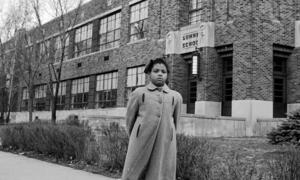Every morning at 7:15, the doors of our school open wide to a line of bus riders ready to come inside. "Hello, Jaheem. Hi, Kiara. Hey, Imani. Hope you're having a good day, Omar," I call out as the students walk past me to the cafeteria for breakfast. I stand at the doors for a moment and watch the big, yellow buses puff their diesel exhaust and chug their way to the garage until it's time for their afternoon run. Is there a more universal symbol for public schools than a big, yellow school bus?


